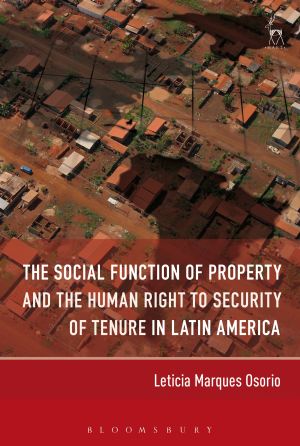
Property has often been regarded as the privilege of a few and has been employed as a tool to exclude large numbers of non-proprietors from social and political life. In Latin America the social function of property doctrine developed as a response to inequalities and discrimination in land distribution and access.
This book supports a greater role for the state in the enforcement of the social function of property, because it can contribute effectively to the realisation of the human rights to housing and land tenure. It also explores how these rights have operated to provide normative content to, and enforcement of, the social function of property in specific contexts such as Brazil and Colombia.
The book will be of interest to academics, practitioners and policymakers working in the areas of property, housing and land rights throughout the world.